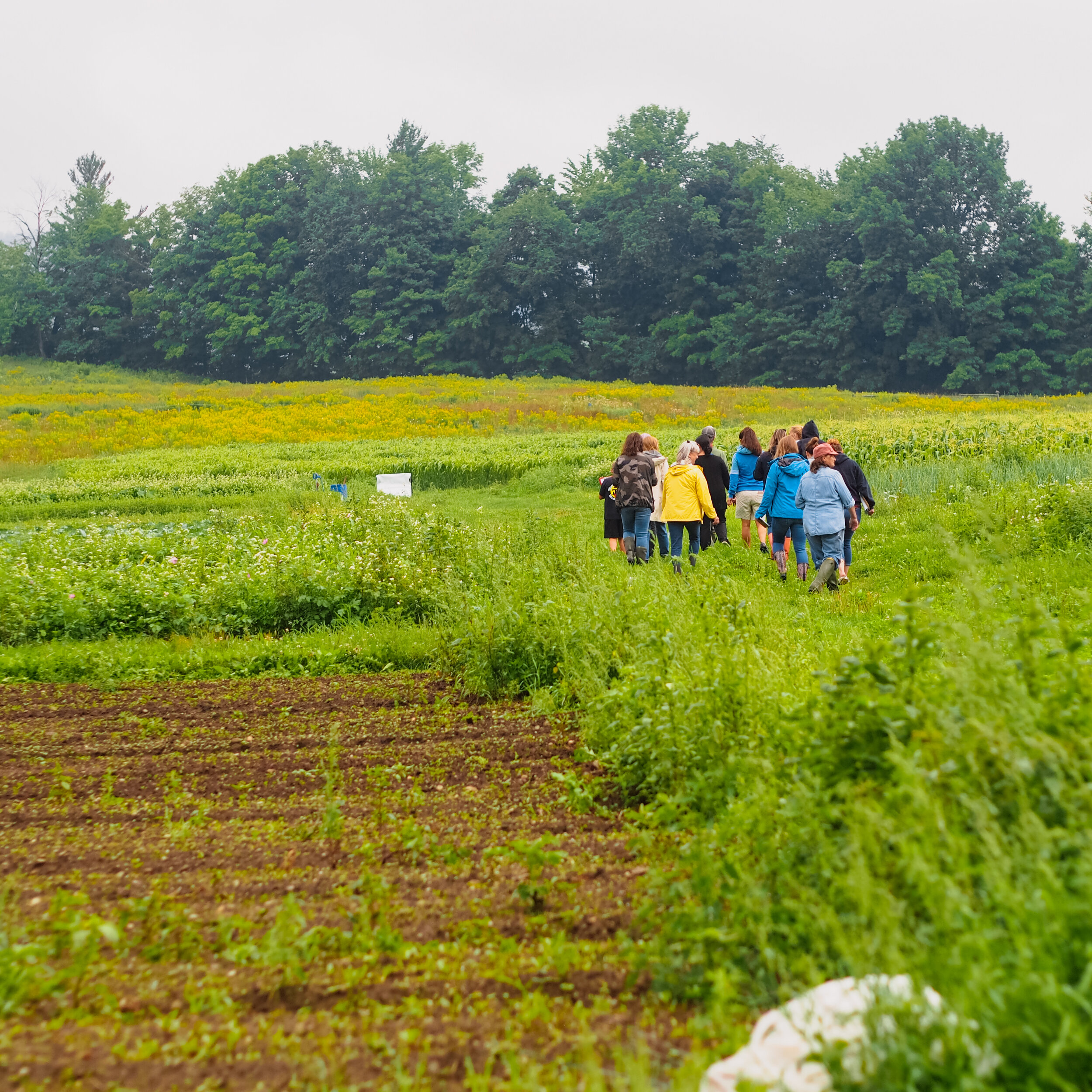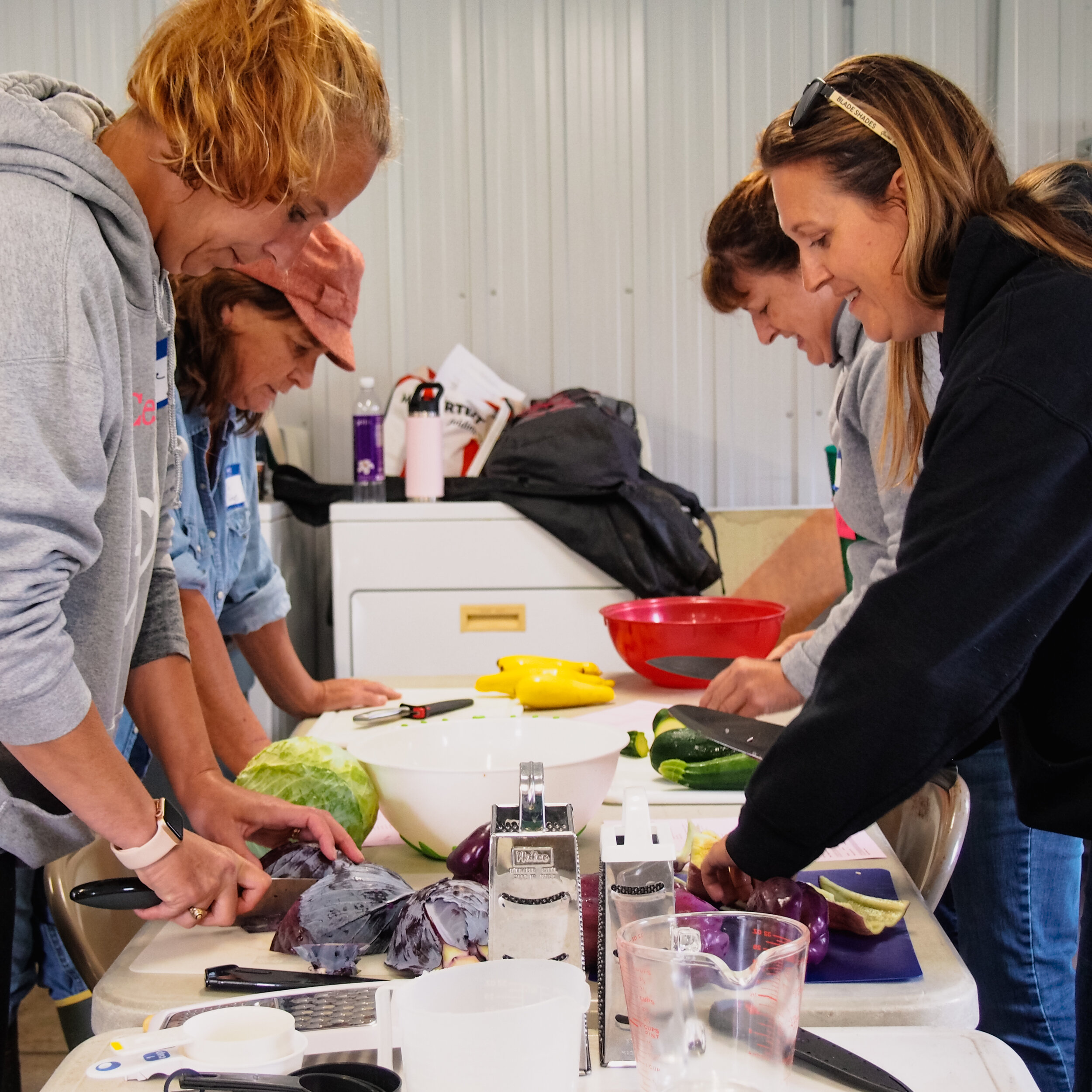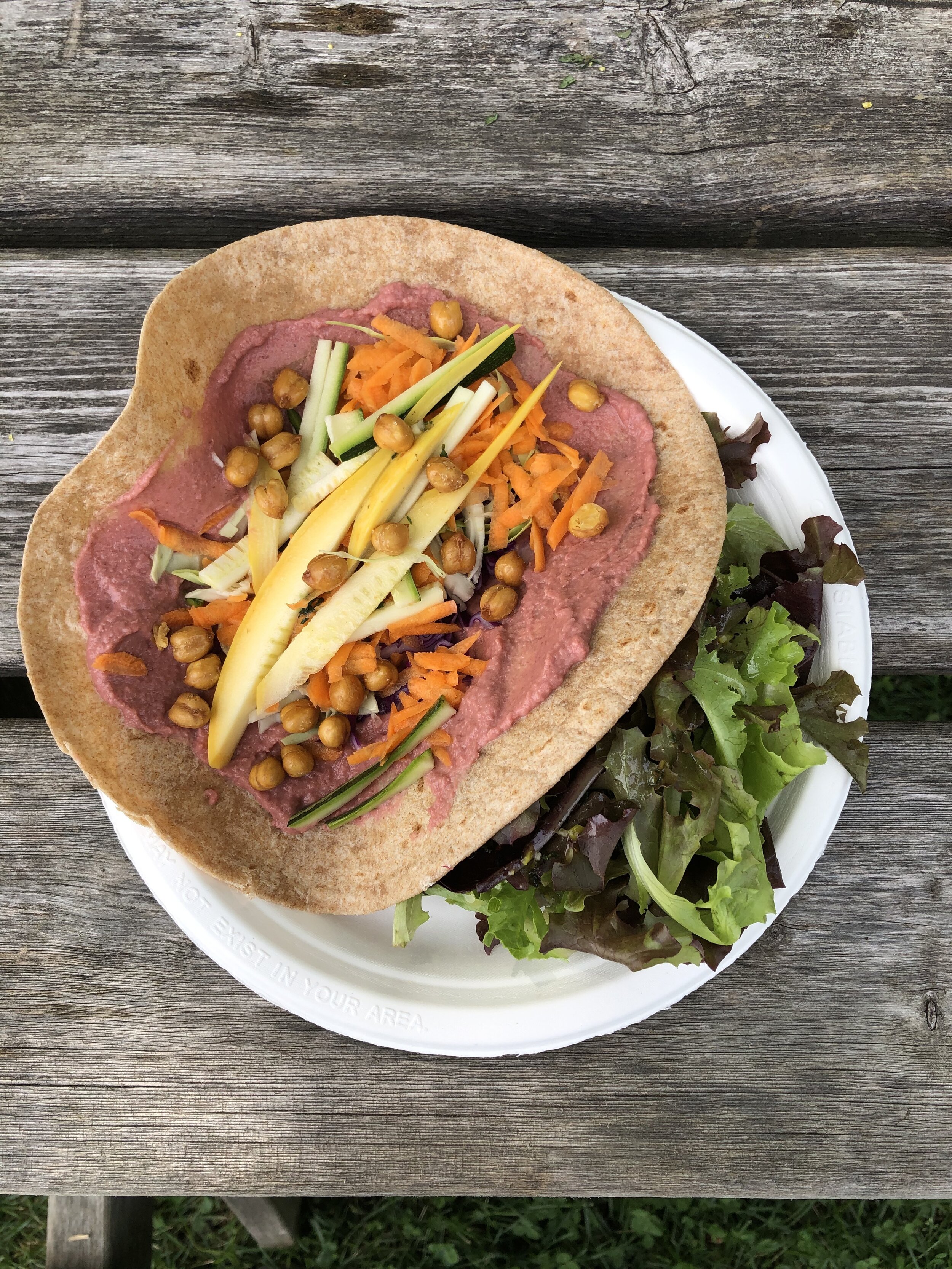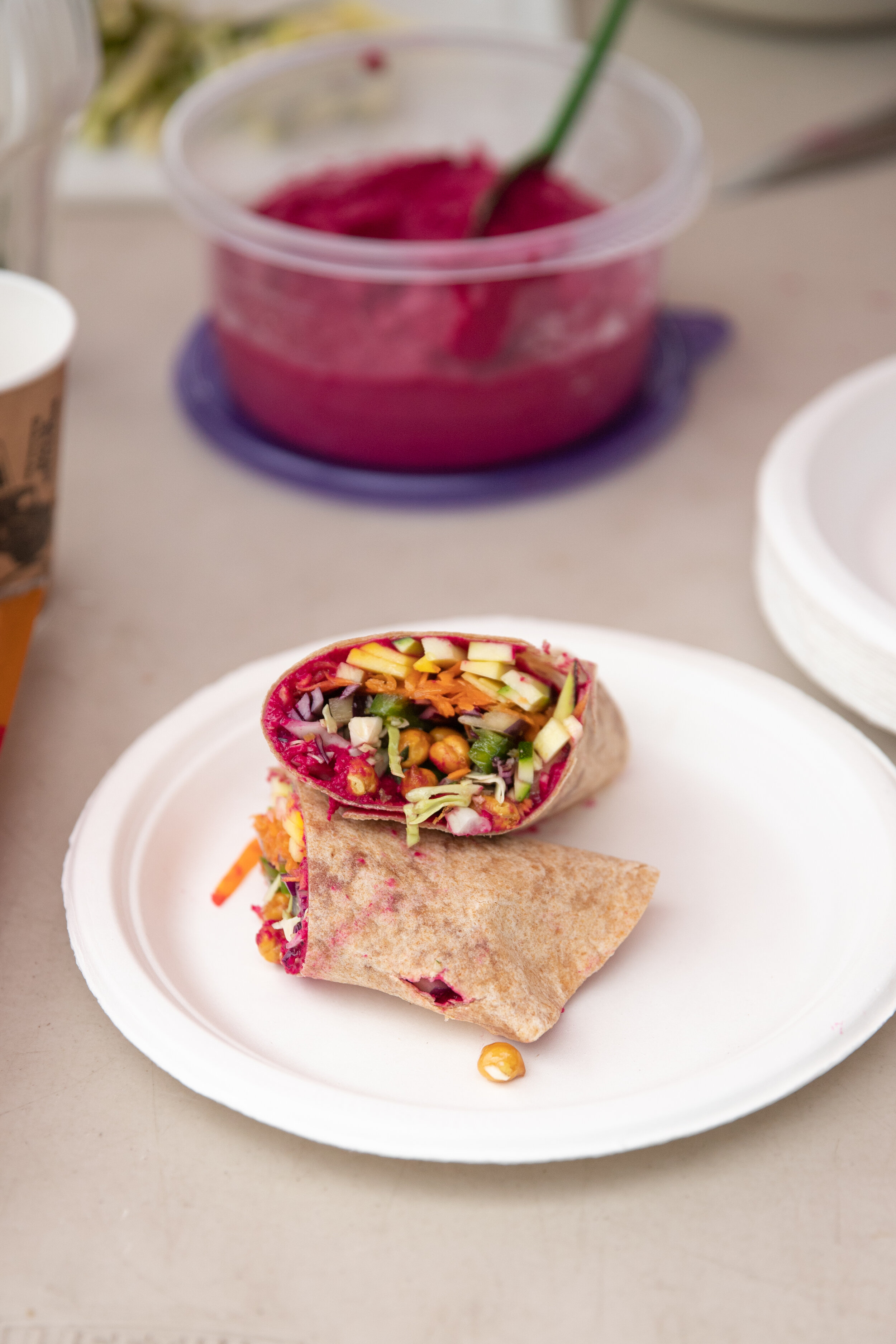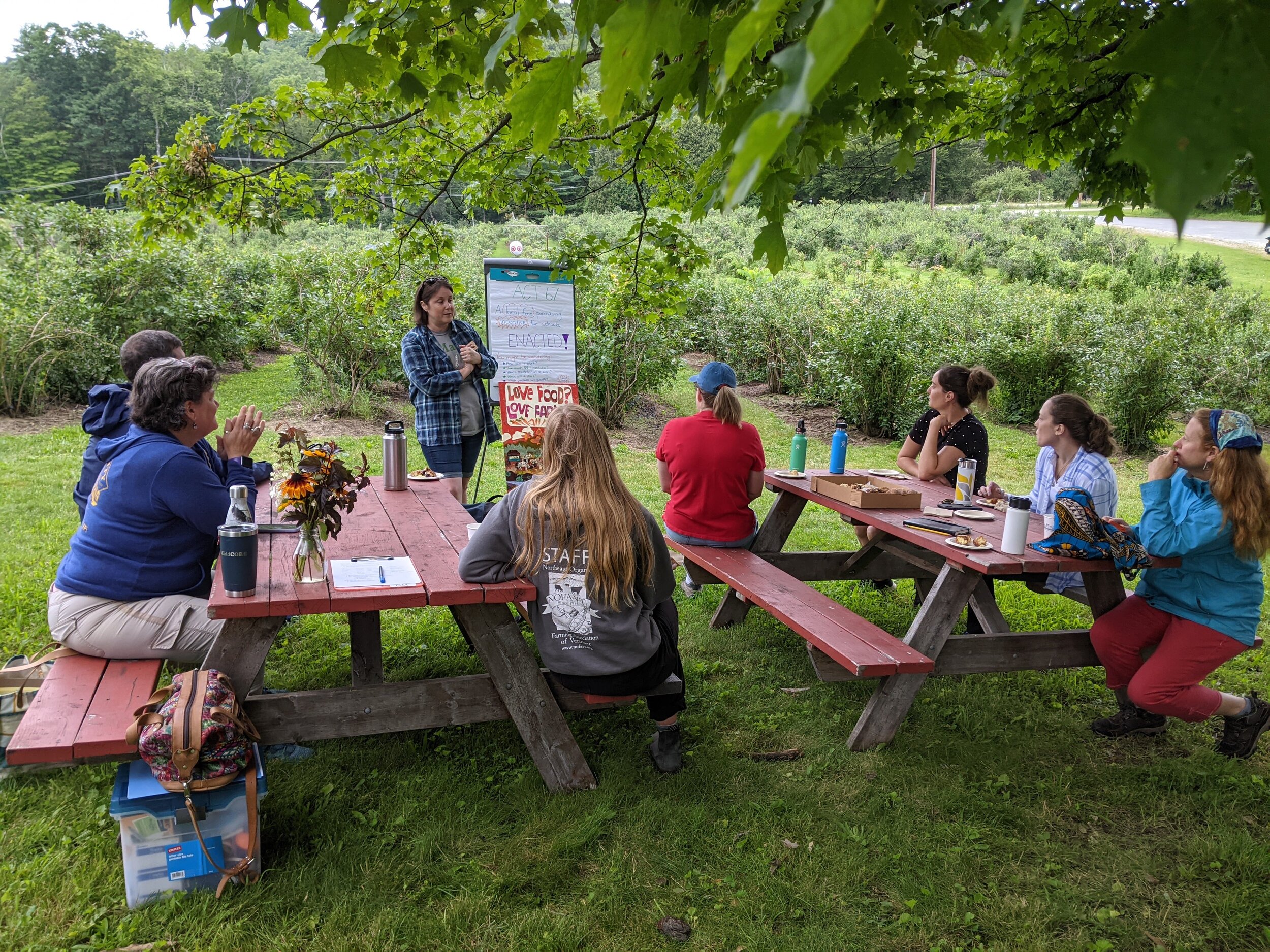Central Elementary in Bellows Falls is excited to be able to expand their Farm to School (FTS) programming by joining the Northeast Farm to School Institute this year! In October, second graders took on a leadership role as they taught their peers about carrots. The students were wrapping up an ongoing project in which they harvested, researched, and painted carrots, and then presented what they learned to students in grades kindergarten through fourth! At the end of the week, Food Service Professional Erica Frank cooked up a carrot cake breakfast cookie as a special breakfast item highlighting carrots grown in the school garden.
This deep dive into project-based learning and authentic teaching is one example of the exemplary Farm to School programming happening at Central Elementary School. This Bellows Falls area school is the latest in Windham County to join the Northeast Farm to School Institute. The Institute, which runs from Summer 2021-Summer 2022 is a year-long professional development opportunity offered by Vermont FEED. It gives school teams the time and guidance to form a Farm to School Action Plan and decide how they want to implement Farm to School in their community. The Institute also provides schools with a grant and coaching to get their programs off the ground.
Asked about why they were interested in joining the Institute, 2nd-grade teacher Judy Verespy remarked, “I think FTS helps students make the connection that eating well supports their learning and their health. I am also hoping they learn that it connects us with farmers in our community and helps support their important businesses. It truly is a win-win!”
This fall students have also harvested vegetables, planted garlic, and prepared the garden for winter. Future plans include hosting farmers as guest speakers, expanding their growing capacity, and continuing to create community through student-to-student teaching. And this work is already showing an impact. As Verespy shared, “One way FTS has impacted our school thus far is generating excitement and interest in fuelling our bodies properly. I see students reading nutrition labels and bringing or choosing fresh fruits and vegetables for snacks more often!”
Thank you to Vermont FEED for supporting so many schools with this program and Chroma Technology for sponsoring Central Elementary’s attendance at the institute this year. And, thank you to Central Elementary for your inspiring work!
Want to try those tasty-sounding Carrot Cake Breakfast Cookies? Check out the recipe below!
Carrot Cake Breakfast Cookies
*adapted from “Love Real Food” magazine
1 cup oats
1 cup white whole wheat flour
1 teaspoon baking powder
1 teaspoon ground cinnamon
½ teaspoon salt
¼ teaspoon ground ginger
1 ½ cups peeled and grated carrots
1 cup toasted sunflower seeds
¼ cup raisins or dried cranberries
½ cup honey or maple syrup
½ cup oil-coconut or vegetable
Preheat the oven to 375 degrees. Line a large rimmed baking sheet with parchment paper.
In a large bowl, combine oats, flour, baking powder, cinnamon, salt, and ginger. Whisk to blend. Add in the carrots, raisins, sunflower seeds and stir to combine.
In a medium bowl, combine honey or maple syrup with the oil. Whisk until blended. Pour wet mixture into the dry, and stir until just combined. The dough will appear very wet.
Drop a small spoonful of the mixture onto the baking trays; leaving 2 inches between each scoop. Using the palm of your hand, gently flatten the cookie to about ¾ inch thickness.
Bake until the cookies are golden and firm around the edges, about 15-17 minutes. Allow to cool on a baking sheet for 10 minutes, then transfer to a baking rack to cool completely. Leftover cookies will keep, covered, at room temperature for about 2 days; 5 days in the refrigerator, and 3 months in the freezer.




